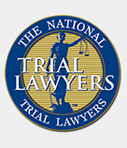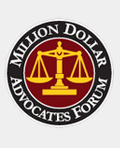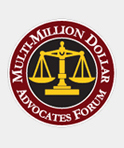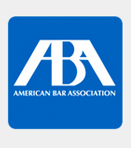by: Peggy Bruner
One of the most common questions I get from my clients is – “but what do I do about my car?!” When you have been involved in a car accident, and your vehicle is undrivable, you face immense pressure to find a way to get to medical appointments, your attorney’s office, and most importantly, your job. The average car accident with no injuries and only property damage will cost $8,900, but the average American only has about $10,000 in their checking account. Depending on the value of your car, the extent of your injuries, your insurance coverage, and the at-fault driver’s insurance coverage, you may be forced to pay out of pocket for medical care and property damage to your vehicle.
This guide will answer:
- What types of property damage insurance coverage are available, and what situations do they cover?
- Do I have to report a car accident I was involved in?
- Who’s responsible for fixing or replacing my vehicle?
- Do I file a claim with my own insurance or the at-fault party’s?
- How do I get my car damage fixed?
- What can I do about transportation in the meantime?
- How do I know my car is totaled?
- How do I replace my totaled vehicle?
- How do I determine the fair market value of my car?
- Will I have to pay a deductible?
In Florida, drivers are only required to carry $10,000 of Personal Injury Protection coverage and $10,000 of Property Damage Liability coverage. Florida is a “No-Fault” state, which means that regardless of who causes the accident, your first ~$10,000 of medical expenses are covered by your Personal Injury Protection coverage. Property Damage Liability covers expenses if you (or someone else operating your insured car) damage(s) another’s property in an auto accident. Property Damage Liability does not cover damage done to your car by another. Typically, the at-fault party’s insurance will cover the damage done. But what happens if you’re involved in an accident with an uninsured driver? Or a driver with limited coverage? You hit a deer, or a branch falls on your vehicle? You will need to purchase additional coverage for those circumstances.
Were you sold “full coverage” insurance? See why that might not include optional types of coverage that can protect you after a car crash here.
Additional Types of Auto Insurance Coverage Available in FL
There are many additional types of optional automobile insurance coverage. For purposes of this article, we will only discuss those that deal with property damage and not those related to bodily injury. Comprehensive, collision, rental reimbursement, towing and labor, and gap coverage are all optional forms of coverage, not required by law to carry in Florida.
- Comprehensive or “Other than Collision” covers damage to your car caused by theft, fire, hurricanes, vandalism, fire, hail, other falling objects, natural disasters, and even collisions with animals. Comprehensive coverage often pays for windshield replacements and does not charge your deductible.
- Collision covers repairs or the fair market value of your vehicle if it crashes into another vehicle, flips, or hits another object. Collision coverage may be required if you finance your car.
- Rental Reimbursement covers rental cars or public transportation while your vehicle is repaired. It does not cover rental cars while your vehicle is receiving routine maintenance or other times that you need a rental car. If you were not at-fault in the accident, the at-fault party’s liability insurance might cover the cost of your rental car; however, the cost of your rental could be deducted from the offer to settle your car repair or replacement.
- Towing and Labor covers towing expenses if your car is undrivable after an accident, your car battery dies, and labor costs at the time and location of the breakdown. Every car owner should be aware of whether their car can be safely towed on a standard tow truck or requires a flat-bed tow truck. All-wheel-drive, lowered, and some heavy SUV, minivans, and electric cars require flat-bed towing.
- Gap insurance covers the difference in your vehicle’s value and how much you still owe on your car loan (or lease) when your car purchased on a loan (or leased vehicles) is totaled or stolen and not found. Your car’s value depreciates over time, and if someone totals or steals your car, you are only entitled to recover the fair market value of the car at the time of the loss. Gap insurance covers the difference between the value at the time of the loss and the amount that is still owed on the vehicle.
Before you get started, you should know that regardless of who is at-fault in the accident, if anyone is injured or dies, or there is more than $500 in property damage, you must contact local law enforcement (Florida Statute 316.065).
Steps to Take During Your Insurance Claim
Step 1 – Find out if your vehicle is going to be totaled or repaired.
Make a claim with your own insurance company and the at-fault party’s insurance.
You should not shy away from making a claim with your insurance for fear that your insurance rates will go up. It is a violation of Florida Statute 626.9541 for an insurance carrier to raise the premiums of a policyholder who was involved in a car crash that he or she did not cause.
Also, you must report any accident to your automobile insurance company, or you may face penalties, such as a hefty fine or a canceled policy. Practically speaking, it’s always better for your insurance company to hear your side of the story first. Even if you weren’t at-fault or the other driver says they don’t plan to make a claim, you’d rather your insurance company hear your version of the accident before they hear anyone else’s.
Even if you did not cause the accident, and the at-fault party’s insurance is responsible for replacing or repairing your vehicle, your insurance company has a duty to help you in the process. Many insurance companies will take care of the entire claim for you and seek reimbursement from the at-fault party. If an insurance adjuster tells you that the at-fault party’s insurance company involved bears the responsibility of paying for your replacement or repairs, kindly remind them of your duty to disclose the accident to your insurance company, and ask them what next steps you should take.
Step 2 – Calculate your car’s fair market value.
The moment you drive your car off the lot, it begins depreciating in value. Websites like Kelly Blue Book (hyperlink: https://www.kbb.com/instant-cash-offer/?Lp=73111D1C-71E5-4563-8EED-03932B322D6C&OfferCode=B&LNX=KBBHUBOWNFIRST&zip=undefined&isCombined=true) and Cars.com (hyperlink: https://www.cars.com/sell/book-value/) help determine your vehicle’s fair market value at the moment of your car crash. These websites use algorithms and data to help you determine an accurate idea of your car’s fair market value and predict whether your car will be deemed a total loss.
Step 3 – Have an adjuster assess the damage to your vehicle.
The insurance company’s representative will determine if the car can be repaired to a drivable condition and the estimated cost of the repairs. If the cost to repair the vehicle is more than twice the car’s value, your car will be determined to be a total loss, or “totaled.”
Step 4 – If your car is not totaled, have it repaired.
The insurance company will likely recommend auto-body repair shops where you can choose to have your vehicle repaired. The insurance company may allow you to choose your own repair shop. Be aware that some insurance companies may not cover the cost of repairs if you select specific auto-body repair shops.
If your car is totaled, use the fair market value of your vehicle as a negotiating tool to determine how much your settlement should be.
Be sure to add the cost of any recent modifications, upgrades, or repairs you’ve made to your vehicle. Make it clear to the at-fault party’s insurance and your own insurance company that you cannot accept anything less than your car’s fair market value at the time of the accident.
Other Common Issues with Property Damage Claims
Do I have to pay my deductible?
- Most insurance policies do not require you to pay your deductible if you do not cause the accident.
- The at-fault party has an obligation to pay for the damages they caused, and thus they have a duty to pay your deductible.
- If the at-fault party was cited with any criminal infraction, such as reckless driving, or leaving-the-scene of an accident, you may ask your assigned State Attorney for the at-fault driver to pay your deductible as part of restitution.
- If you were injured in the accident, you can ask your personal injury attorney to include reimbursement for your deductible in a Complaint for Damages.
- Although time and cost-consuming, you can also pursue reimbursement of your deductible from the at-fault individual in small claims court.
My adjuster won’t agree to pay for “after-market modifications” on my car but were made before I purchased the vehicle.
- Be firm with your assessed value of the car. You are entitled to be made whole.
- Provide documentation supporting your valuation of the car, including receipts of recent repairs.
My car was deemed worth less than the cost of repairs. Now I can’t afford to buy a new car, even with my total loss check.
- Do not purchase or lease a new car until you’ve settled your property damage claim. You should be able to use your settlement proceeds toward your replacement car.
- Used cars are the most affordable option for a replacement vehicle.
- Leasing is also an excellent option to reduce your replacement car’s cost, although leases can still be expensive.
- Look into financing your replacement vehicle.
Someone badly damaged my vehicle; do I have a right to be compensated?
- You are only entitled to be compensated for the reasonable cost of repairs to your vehicle if it is repairable, or the fair market value of your vehicle if it is totaled.
- Even if you are in the vehicle at the time of the accident, you are not entitled to additional compensation for property damage.
What is a salvage title?
- A salvage title is given to a car that’s value is less than the cost of its needed repairs after an accident, or an insurance company has determined it to be a total loss.
- Salvage title cars cannot be insured, registered, or driven on public roads.
Pro Tip – The best property damage claims are handled swiftly. Going without transportation can jeopardize your job security and your medical treatment.







